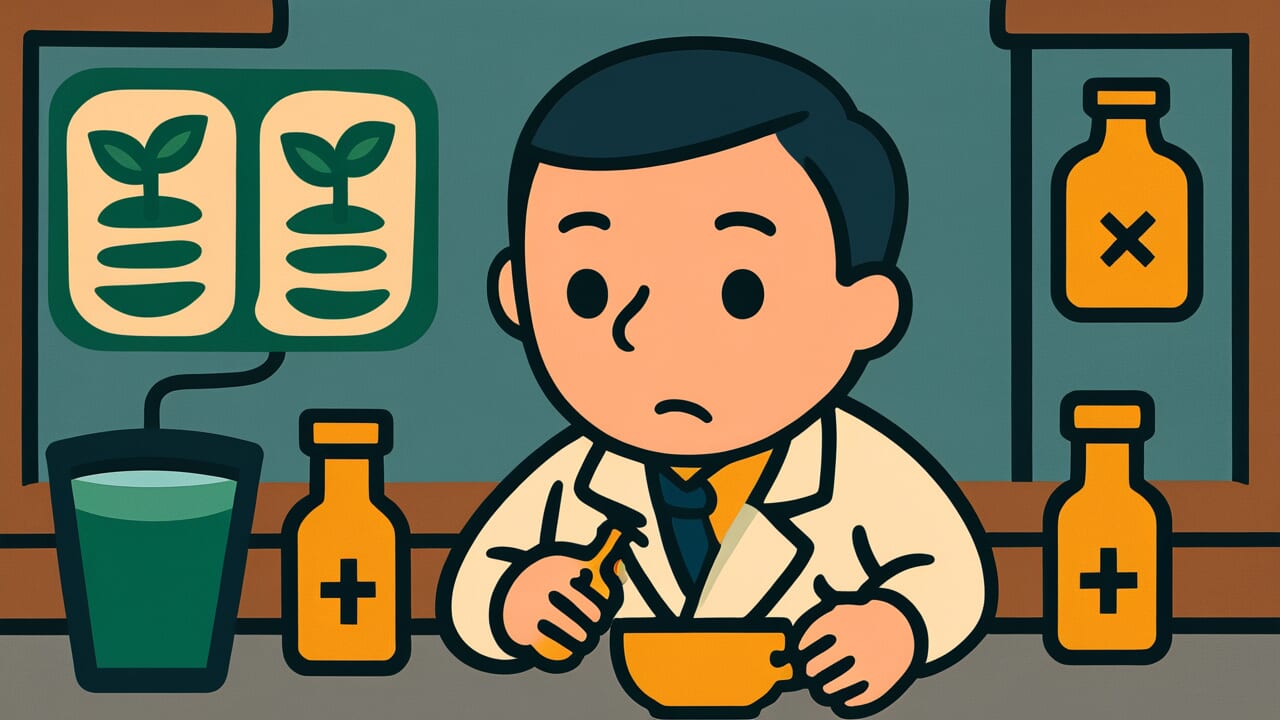How to Read “Drinkers don’t know poison, non-drinkers don’t know medicine”
jōgo wa doku wo shirazu geko wa kusuri wo shirazu
Meaning of “Drinkers don’t know poison, non-drinkers don’t know medicine”
This proverb means that people who love alcohol don’t see its harmful effects. Meanwhile, people who dislike alcohol don’t recognize its benefits.
It shows how humans develop biased views. When we like something, we become blind to its dangers and flaws. When we dislike something, we refuse to see its advantages or good points.
The proverb uses alcohol as an example, but the lesson applies to everything. People become obsessed with what they love and ignore warning signs.
They dive in too deep without noticing problems. On the flip side, they reject things they dislike, even when those things have real value.
This saying warns against one-sided thinking. It teaches the importance of balanced perspective. Today, people use it for hobbies, work, relationships, and many other situations.
Origin and Etymology
The exact origin of this proverb isn’t clearly documented. However, people were already using it widely during the Edo period.
The words “jōgo” and “geko” have ancient roots. Originally, they referred to household classifications in the old legal system. But in this proverb, they mean something different.
“Jōgo” came to mean heavy drinkers, while “geko” meant people who can’t drink alcohol. These meanings became standard over time.
In Japan, alcohol has always played important roles. It was essential for religious ceremonies. People also used it as medicine.
There’s a famous saying: “Sake is the best of all medicines.” Small amounts of alcohol can warm the body and improve blood circulation. But everyone also knew that drinking too much destroys health and ruins lives.
This proverb emerged from understanding alcohol’s dual nature. It warns against biased thinking. People can’t see the flaws in what they love or the merits in what they hate.
This sharp observation of human psychology spread among common people. They passed it down through generations as practical wisdom.
Interesting Facts
Medical books from the Edo period contain many records of prescribing alcohol as medicine. Doctors recommended small amounts of warmed sake for chills and fatigue.
However, these same books also detailed the harms of excessive drinking. This shows that people back then already understood alcohol could be both poison and medicine.
The words “jōgo” and “geko” originally meant large household and small household. At banquets, people started calling heavy drinkers “jōgo” and light drinkers “geko.”
Eventually, these terms took on their current meanings of drinker and non-drinker.
Usage Examples
- He only plays games and never studies. It’s exactly like “Drinkers don’t know poison, non-drinkers don’t know medicine”
- Watching my friend lose big money on investments, I thought “Drinkers don’t know poison, non-drinkers don’t know medicine” really hits the mark
Universal Wisdom
This proverb reveals a universal truth about human perception. It shows how easily our thinking becomes biased. We think we see things objectively, but we don’t.
We actually view the world through filters of personal preference. Our likes and dislikes color everything we see.
When we like something, we unconsciously focus only on its good aspects. There’s a saying that love is blind. The more absorbed we become, the less we notice danger signals.
The opposite happens with things we dislike or find uninteresting. No matter how excellent they are, we refuse to acknowledge their value. This psychological resistance works automatically.
This bias connects to instincts humans developed for survival. Focusing on what we like and avoiding what we dislike helps us act efficiently. But when this instinct goes too far, we make poor judgments.
We put ourselves at risk without realizing it.
Our ancestors understood this human tendency well. That’s why they used alcohol, something familiar to everyone, to teach about balance. They wanted us to know both the poison in what we love and the medicine in what we hate.
This is the path of wisdom. As long as humans remain emotional beings, this teaching will never lose its relevance.
When AI Hears This
People who can drink alcohol judge from experience: “This much is fine.” But a huge blind spot exists there. In cognitive psychology, this is the Dunning-Kruger effect.
The more familiar people are with something, the less they notice their own ignorance. Daily drinkers feel “normal” even when their liver values worsen. The change happens too gradually for them to detect the abnormality.
Meanwhile, people who can’t drink alcohol feel cautious about even small amounts. They think “This might be dangerous.” This looks like overreaction from inexperience.
But they don’t know that moderate amounts can improve blood circulation. What’s interesting is that both groups judge only within their experience range.
This proverb is sharp because it explains cognitive distortion through experience, not ability level. The Dunning-Kruger effect usually means “incompetent people are overconfident.”
But this proverb shows a more everyday, symmetrical structure. Experienced people become insensitive to danger. Inexperienced people become insensitive to benefits.
Humans tend toward optimism in familiar areas and pessimism in unfamiliar ones. This creates a double blind spot. Ancient people captured this brilliantly using the familiar example of alcohol.
Lessons for Today
This proverb teaches modern people the importance of consciously seeking diverse perspectives. For things you like, try looking at them critically. For things you dislike, try finding their good points.
This habit develops balanced judgment.
Today’s world overflows with information. If you only consume information matching your preferences, your perspective narrows without you noticing. In investing, relationships, and work, you need to pause and think, especially when absorbed in something.
This proverb also offers hints for understanding others better. When someone becomes obsessed with something, they might not see dangers you can see.
When someone dislikes something, they might miss value that’s obvious to you.
The key isn’t denying your emotions. It’s being aware of your feelings while maintaining another viewpoint. It’s okay to like what you like.
But also know its poison. This mature attitude will enrich your life.



Comments